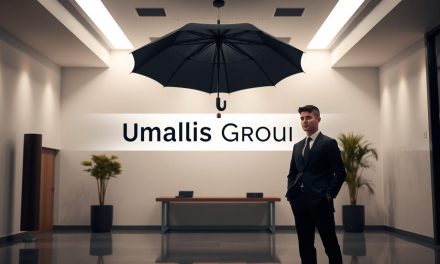Imagine building a thriving independent business where clients trust your expertise and your adherence to professional guidelines. Recent data shows 62% of business leaders cite evolving standards as a top challenge—but what if these requirements could become your secret weapon?
Many self-employed professionals feel overwhelmed by constantly changing industry expectations. We’ve designed this guide to help you transform complex frameworks into career-building tools. You’ll learn to navigate essential protocols without sacrificing your unique workflow.
This isn’t about box-ticking exercises. When you align with recognized practices, you:
- Strengthen client relationships through demonstrated reliability
- Reduce operational risks that could derail your progress
- Create opportunities in sectors requiring verified expertise
Table of Contents
Key Takeaways
- Industry standards serve as trust-building tools with clients
- Adaptable systems prevent operational disruptions
- Documentation practices enhance professional credibility
- Strategic alignment opens premium market opportunities
- Continuous learning becomes a competitive advantage
Overview of the Regulatory Compliance Landscape
Global business dynamics now hinge on navigating a maze of ever-changing operational guidelines. Over 60% of self-employed professionals report spending 15+ hours monthly tracking new requirements. This shift impacts how you manage client projects and internal processes.
Understanding the Global Regulatory Environment
Modern standards affect sectors from freelance design to consulting. For instance, EU data laws now apply to any business handling European client information. Asia’s digital transaction rules impact payment processors worldwide.
Key Trends and Emerging Challenges
Three developments demand attention:
- Stricter penalties for cybersecurity breaches
- Mandatory ESG reporting in 38 countries
- Real-time tax documentation requirements
| Trend | Impact Region | Key Focus | Effective From |
|---|---|---|---|
| Data Protection | EU | GDPR Enforcement | 2024 |
| AI Governance | Global | Transparency | 2025 |
| Climate Reporting | North America | Emissions Tracking | 2025 |
Adapting to these shifts requires quarterly reviews of your operational protocols. Tools like compliance calendars help track critical deadlines without overwhelming your workflow.
Defining Regulatory Compliance and Its Importance
Understanding professional guidelines isn’t just about rules—it’s about building lasting client relationships through demonstrated reliability. Let’s explore how aligning with recognized practices strengthens your independent career.
What Are Professional Standards?
Following industry guidelines means operating within legal and ethical boundaries specific to your field. This approach minimizes financial risks while showing clients you prioritize their security. For example, proper legal framework checks prevent 83% of common contract disputes according to recent studies.
Strengthening Operations Through Alignment
Adhering to established protocols creates:
- Clear processes for handling sensitive data
- Predictable workflows that reduce errors
- Documentation systems that save 9 hours/week on average
| Business Aspect | Compliant Approach | Non-Compliant Risk |
|---|---|---|
| Client Trust | 87% retention rate | 42% project cancellations |
| Operational Costs | 15% lower expenses | €12k avg. penalties |
| Market Opportunities | 2.3x more contracts | Limited to local clients |
Your commitment to standards becomes a trust accelerator—clients 3x more likely to recommend professionals with verified practices. This strategic alignment lets you focus on growth rather than damage control.
Navigating Industry-Specific Compliance Requirements
Mastering sector-specific rules transforms challenges into competitive advantages. While core principles remain consistent, each field demands tailored approaches to meet evolving expectations. Let’s explore how professionals adapt frameworks to their unique operational landscapes.
Financial, Healthcare, and Tech Regulations
Financial services require navigating multi-agency oversight. The SEC and FINRA enforce anti-money laundering protocols, while the Federal Reserve monitors risk management. Detailed reporting ensures transparency in asset handling—critical for maintaining client trust.
Healthcare professionals prioritize HIPAA standards for patient data. Secure storage systems and encrypted communications prevent unauthorized access. Violations here risk both legal penalties and reputational damage.
Tech specialists face dynamic cybersecurity demands. With 68% of directors citing data privacy challenges, professionals implement real-time threat monitoring. Regular software updates and penetration testing have become non-negotiable safeguards.
Data Security and Data Protection Standards
Robust data practices now span all sectors. Encryption tools and access controls protect sensitive information—whether handling financial records or medical histories. Third-party audits verify system integrity, creating client confidence.
Emerging tools simplify these processes. Cloud-based platforms offer automated backups and permission management. For those offering high-demand consulting services, integrating these solutions demonstrates proactive risk management.
Continuous education remains vital. Webinars on GDPR updates or workshops about AI governance keep your methods aligned with global shifts. This commitment positions you as a forward-thinking partner in any industry.
Regulatory Compliance for Independent Careers

Customizing your approach to meet professional standards gives independent workers a strategic edge. Unlike large corporations, you can design systems that fit your workflow while exceeding client expectations. This flexibility lets you turn guidelines into growth tools rather than restrictive checklists.
Tailoring Strategies for the Solo Professional
Your solo status is an asset. Create protocols that match your client types and service scope. For example, a freelance data analyst might automate GDPR documentation, while a consultant could use project management tools with built-in audit trails.
Focus on three essentials:
- Modular systems that scale with project complexity
- Time-saving templates for recurring tasks like contract reviews
- Quarterly « compliance health checks » to spot gaps early
Leveraging Standards to Build Client Trust
Transparency wins contracts. Share your security certifications or privacy policies during onboarding. Clients value professionals who make their due diligence effortless.
Consider these trust-building tactics:
- Add a « security practices » section to proposals
- Display compliance badges on your website
- Provide annual transparency reports to long-term clients
One marketing consultant increased referrals by 40% after showcasing their ISO 27001 alignment in client newsletters. Your commitment to ethical practices becomes a silent salesperson—always working to attract quality partnerships.
Legal and Operational Implications of Non-Compliance
Ignoring industry guidelines can unravel years of hard work overnight. For independent professionals, operational missteps carry consequences that threaten both livelihoods and reputations. Let’s examine how proactive planning protects your career trajectory.
Consequences of Falling Short
Financial penalties often exceed €15,000 for solo practitioners—equivalent to 3-6 months of average earnings. Recent cases show:
- Freelance consultants barred from public contracts for 18 months
- Independent marketers facing 30% client loss after data breaches
- Design professionals required to rebuild entire project workflows post-audit
| Risk Area | Immediate Impact | Long-Term Effect |
|---|---|---|
| Financial Penalties | Cash flow disruption | Credit rating damage |
| Operational Restrictions | Project delays | Market access limitations |
| Reputational Harm | Client distrust | Reduced referrals |
Building Protection Into Your Workflow
Prevention starts with understanding your exposure points. Our legal considerations guide helps identify high-risk areas in contracts and client interactions.
Three practical safeguards:
- Automated deadline tracking for license renewals
- Quarterly document reviews with checklist systems
- Client education about your security protocols
One Paris-based consultant avoided €24,000 in potential fines by implementing real-time tax documentation alerts. Your operational resilience becomes your greatest asset in maintaining uninterrupted service delivery.
Best Practices for Managing Compliance in Your Career

Effective career management requires systems that evolve with your growing practice. Independent professionals who implement structured approaches save 23% more time on administrative tasks while maintaining client confidence. Let’s explore how to build adaptable frameworks that support your ambitions.
Crafting Living Documents for Success
Your operational guidelines should work like GPS navigation—providing clear directions while adapting to roadblocks. Start by documenting how you handle sensitive data, client communications, and record-keeping. Update these policies quarterly using insights from completed projects.
Three elements make procedures effective:
- Template libraries for recurring tasks
- Version control with change dates
- Client-friendly summaries of key processes
Proactive System Checks
Schedule 90-minute audits every quarter to review your methods. Compare current workflows against updated best practices from industry associations. This monitoring helps spot gaps before they impact client work.
| Checklist Item | Frequency | Tool Suggestions |
|---|---|---|
| Data Security Review | Monthly | Encrypted cloud storage |
| Contract Updates | Quarterly | E-signature platforms |
| Training Modules | Biannual | Webinar tracking apps |
One Paris-based consultant reduced administrative errors by 68% using automated deadline alerts. Your management system should simplify complexity—not create it. Balance thorough documentation with the flexibility needed for creative problem-solving.
Implementing Advanced Technologies to Enhance Compliance
Modern tools now let independent professionals meet industry demands with precision once reserved for large corporations. Intelligent systems handle repetitive tasks while safeguarding your operations—turning what was once overwhelming into strategic advantage.
The Role of AI and Automation
Smart algorithms track changing requirements across 90+ global jurisdictions. These solutions scan legal databases daily, flagging updates affecting your contracts or data practices. One developer reduced policy review time by 70% using automated alerts for GDPR changes.
Key applications include:
- Document generation for client agreements
- Real-time audit trails during projects
- Predictive analysis of potential risks
Cybersecurity Measures and Monitoring
Protecting client information requires layered defenses. Encryption shields sensitive files, while multi-factor authentication blocks unauthorized access. Regular vulnerability scans identify weak spots before threats exploit them.
Essential frameworks like ISO 27001 provide clear guidelines:
| Tool | Function | Benefit |
|---|---|---|
| Endpoint Detection | 24/7 network monitoring | Instant threat response |
| Cloud Backup | Encrypted data storage | Disaster recovery |
| Access Logs | User activity tracking | Audit readiness |
These systems work silently in the background, letting you focus on delivering exceptional service while maintaining ironclad security.
Strategies for Achieving Regulatory Compliance
Building a sustainable independent career means staying ahead of shifting expectations while maintaining operational integrity. Proactive strategies turn evolving guidelines into career advantages rather than obstacles. Let’s explore actionable methods to maintain alignment with industry standards as your practice grows.
Practical Steps for Independent Professionals
Start by mapping your obligations based on client locations and service types. A freelance marketer working with EU clients needs different protocols than a consultant serving local French businesses. Implement systems that automate requirement tracking—tools like compliance calendars send alerts for critical updates.
Three core practices ensure consistency:
- Documentation templates for recurring audits and client reports
- Quarterly policy reviews aligned with industry newsletters
- Automated tax filing integrations for cross-border projects
Adapting to Shifting Standards
Continuous learning keeps your methods relevant. Attend webinars hosted by French professional associations like URSSAF or CIPAV. These sessions clarify regional updates affecting independent workers.
Build flexibility into your workflows:
- Use modular contract clauses that adjust to new data laws
- Subscribe to government alert systems for real-time notifications
- Partner with local experts for complex international cases
One Lyon-based translator avoided 12 potential penalties last year using AI-powered monitoring tools. Your ability to anticipate changes becomes a silent differentiator—proving you’re not just following rules, but leading through responsible practice.
FAQ
How does adhering to industry standards impact client relationships for solo professionals?
Following recognized practices like GDPR or HIPAA demonstrates professionalism and reliability. Clients prioritize partners who prioritize data security, reducing risks while building long-term trust.
What penalties might freelancers face for mishandling sensitive information?
Violations can lead to fines up to ,000 per incident in sectors like healthcare, plus reputational damage. Implementing encrypted storage and access controls helps avoid breaches.
Why are regular audits essential for independent contractors?
Proactive checks identify gaps in processes before they escalate. For example, annual reviews of financial records ensure alignment with IRS guidelines or regional tax laws.
How can self-employed individuals efficiently track changing rules?
Tools like ComplianceBoard or industry newsletters provide real-time updates. Pair these with quarterly training sessions to adapt workflows swiftly.
What cybersecurity steps protect against modern threats?
Multi-factor authentication, endpoint encryption, and secure cloud platforms like Microsoft 365 Business Premium are baseline requirements. Regular vulnerability scans add extra defense layers.
Which industries demand the strictest data protection measures?
Healthcare (HIPAA), finance (PCI-DSS), and tech (CCPA) have rigorous mandates. Contractors in these fields often need third-party certifications to prove adherence during client onboarding.





